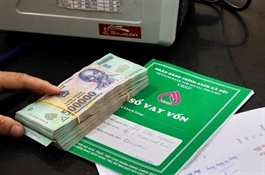Public debt indicators remain in alignment with expectations
Public debt indicators remain in alignment with expectations
The country is projected to keep its public debt within safe levels this year, with a significant state budget surplus recorded in the first nine months of 2024, although a deficit is forecasted for the full year.

New estimates by the government suggest that total public debt in 2024 will be about 36-37 per cent of GDP, below the target of 39-40 per cent, and similar to the 37 per cent recorded in 2023. Government debt is forecasted at 33-34 per cent of GDP, maintaining the same level as last year. Additionally, external debt is projected to be 32-33 per cent of GDP, slightly lower than the 33.5 per cent recorded previously.
By the end of 2025, total public debt is expected to remain at 36-37 per cent of GDP, still well below the 60 per cent threshold, while government debt will be 34-35 per cent of GDP, comfortably under the 50 per cent limit. Foreign debt is also expected to hover around 33-34 per cent of GDP, within safe limits.
The government emphasised that these public debt indicators are aligned with the permissible levels set, thus continuing to ensure national financial security. The positive outlook on public debt management is largely underpinned by a strong state budget performance this year.
Data from the General Statistics Office show that during the first nine months of 2024, state budget revenues reached $60.34 billion, an increase of nearly 18 per cent on-year, while total expenditures stood at $52.34 billion, up only 1.4 per cent on-year. This generated an $8 billion surplus in the state budget, reflecting effective fiscal management.
The nine-month expenditures have supported a wide range of socioeconomic development activities, including security, defence, state management, and local recovery efforts following Typhoon Yagi. Additionally, the state ensured timely payments of debts and other obligations as mandated by regulations.
In terms of revenue structure, domestic revenues for September were estimated at $3.08 billion, raising the cumulative nine-month total to $50.13 billion, a 19 per cent on-year increase, accounting for 83 per cent of total state budget revenues. This reflects robust domestic economic activity, as the government collected revenues from various sources such as taxes, fees, and capital contributions from state-run enterprises, as well as revenue from leasing land and water surfaces, and also from selling the state’s assets.
Export-import activities also contributed significantly to state revenues. In September, revenue from goods exports and imports stood at $641.7 million, bringing the nine-month total to $8.34 billion, a 17.6 per cent increase on-year, accounting for 13.8 per cent of total state budget revenues.
Despite these gains, the government anticipates a state budget deficit for the entire year. Total revenues are expected to reach over $78 billion, exceeding the initial target of $68.75 billion and surpassing the $73.08 billion achieved last year. However, expenditures are expected to rise to $95.07 billion, higher than the initial goal of $85.4 billion, and surpassing last year’s total of $87.9 billion. As a result, the deficit for 2024 is projected to be around $17.7 billion.
The government expects total state budget revenues to rise to nearly $82 billion next year, with expenditures reaching $105.32 billion. This would result in a state budget deficit of $23.32 billion. The government has stated that these expenditures will meet the demands of investment in critical national infrastructure, salary payments for public employees, and implementation of existing policies.
Despite the projected overspending, all indicators related to public debt, government debt, and external debt are expected to remain within safe and permissible limits, ensuring continued financial security. The government also stressed the importance of utilising available fiscal space in public debt, government debt, and budget deficits, which are still below the permissible limits, to mobilise additional resources for national development, particularly through the issuance of government bonds to fund strategic infrastructure projects.




























